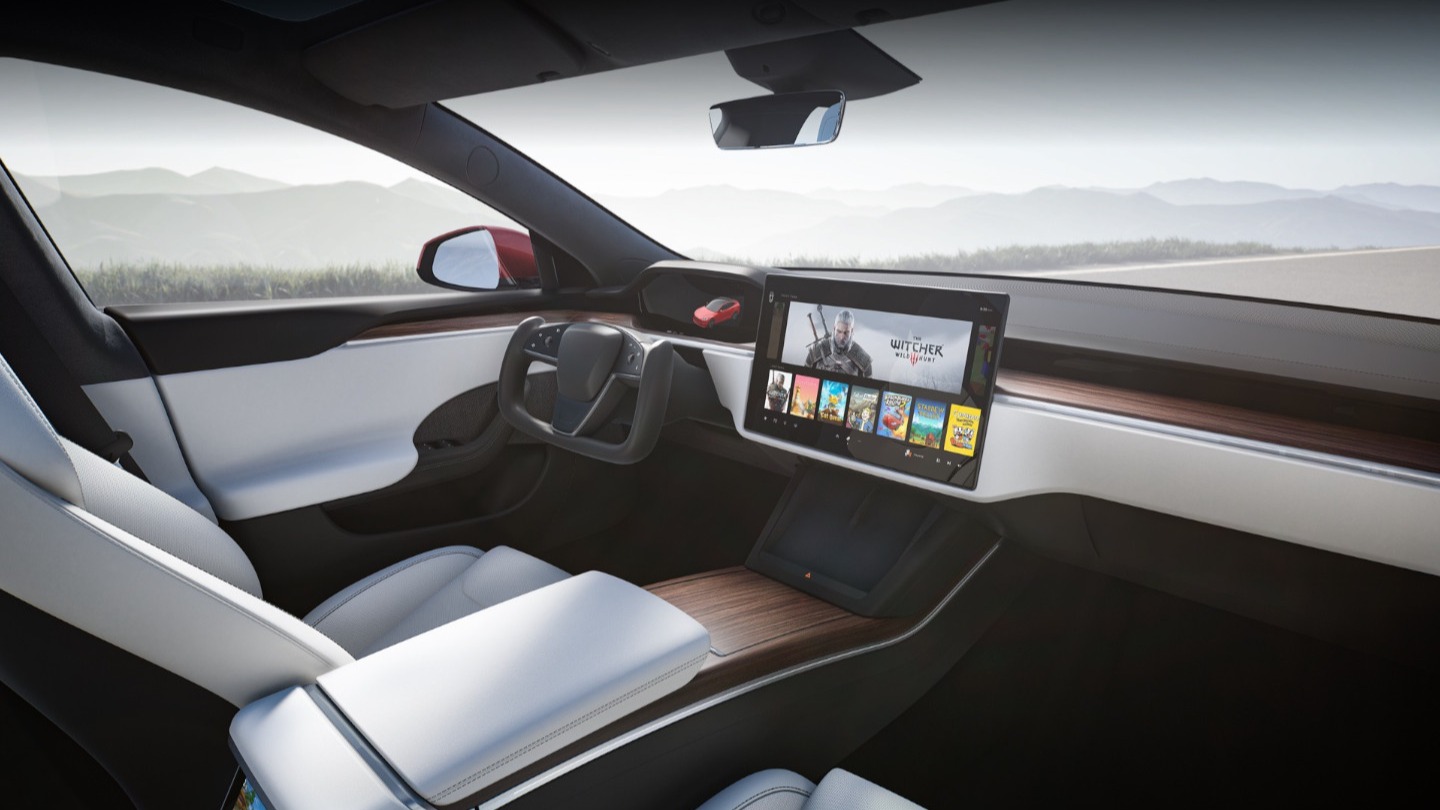
Elon Musk has always been one for bold claims, but maybe the ability to play AAA games in Tesla vehicles wasn’t merely a pipe dream, after all.
At AMD’s Computex 2021 keynote, the chipmaker confirmed that the latest generation of Tesla’s infotainment system – arriving in both the new Tesla Model S and X – is powered by an AMD Ryzen processor and AMD RDNA 2 GPU.
Those internals suggest Musk’s in-car gaming rig is capable of providing up to 10 teraflops of computing power – which isn’t far off the figure boasted by Sony’s PS5.
- Check out the monster screen in the Hummer EV screen
- These are the best graphics cards to buy right now
- Check out our review of the Sony PS5
AMD CEO Lisa Su confirmed the new Tesla models “will have an AMD Ryzen APU powering the infotainment system [...] as well as a discrete RDNA 2-based GPU that kicks in when running AAA games,” adding that the company “look[s] forward to giving gamers a great platform for AAA gaming.”
We’ve previously reported on leaked documents (posted by leaker Patrick Shur) which suggested Tesla planned to use an AMD Navi 23 GPU to power its infotainment systems. That speculation now seems to have been corroborated by the appearance of the same GPU at AMD’s recent keynote, revealed to be powering the company’s newest 6600M laptop graphics cards.
pic.twitter.com/Q7A1zJGtm0January 28, 2021
Now, we’re not suggesting Tesla’s in-car gaming system will match the PS5 for performance, but both use largely the same technology under the hood, save for a smaller number of cores in the Tesla system (28 to the PS5’s 36).
The AMD Navi 23 GPU in the former also boasts 1792 shader units (processors within the graphics card responsible for processing different aspects of an image) to the PS5’s 2304 – so we’re talking small margins here. For comparison, the PS4 came equipped with 1152 equivalent units.
Get daily insight, inspiration and deals in your inbox
Sign up for breaking news, reviews, opinion, top tech deals, and more.
We do, therefore, expect new Tesla owners to be able to play power-hungry games like Cyberpunk 2077 and Assassin’s Creed Valhalla from the comfort of their heated car seats.
Could these games also be playable with ray tracing enabled? We know AMD’s latest GPUs are capable of the rendering method, and this would mark an immense graphical leap from the Intel-powered indie titles currently limited to the Tesla Arcade games library.
Temper expectations
The news isn’t all exciting for prospective Tesla owners-cum-car-gamers, though.
A Tesla employee recently shared a job posting on Twitter suggesting the company is “looking for Linux game developers” to work on software for the company’s latest hardware, which is a pretty conclusive sign that Tesla’s new in-car gaming rig may run games built for Linux.
For my gamer/dev/gamedev followers: we're looking for Linux game devs to work on something *extremely* exciting at Tesla!If you're interested, DM me! 🔗: https://t.co/dPcr4SlhpW pic.twitter.com/94GOmPUWjsMay 25, 2021
So, while 10 teraflops of performance is a mightily impressive figure for what is essentially a games console for a car, less-than-impressive Linux ports on Google Stadia have ensured our expectations are tempered when it comes to the framerate and graphical fidelity we anticipate from AAA titles running in a Tesla vehicle.
In any case, with the Tesla Model S Plaid set to start deliveries on June 10, we’ll have a better idea of what the system is capable of very soon.
- This year, Computex is going virtual, but we'll still be bringing you all the breaking computing news and launches as they happen, so make sure you check out all of TechRadar's Computex 2021 coverage.
Via The Verge

Axel is TechRadar's UK-based Phones Editor, reporting on everything from the latest Apple developments to newest AI breakthroughs as part of the site's Mobile Computing vertical. Having previously written for publications including Esquire and FourFourTwo, Axel is well-versed in the applications of technology beyond the desktop, and his coverage extends from general reporting and analysis to in-depth interviews and opinion. Axel studied for a degree in English Literature at the University of Warwick before joining TechRadar in 2020, where he then earned an NCTJ qualification as part of the company’s inaugural digital training scheme.